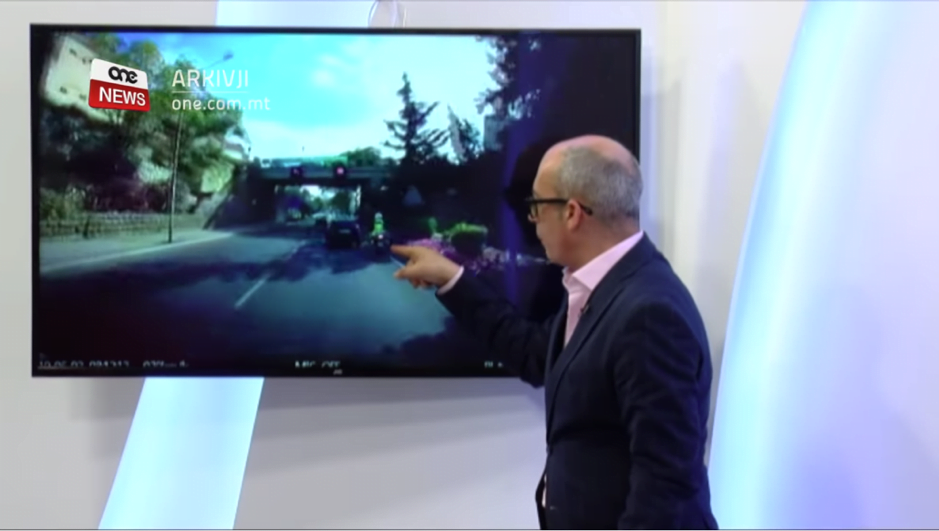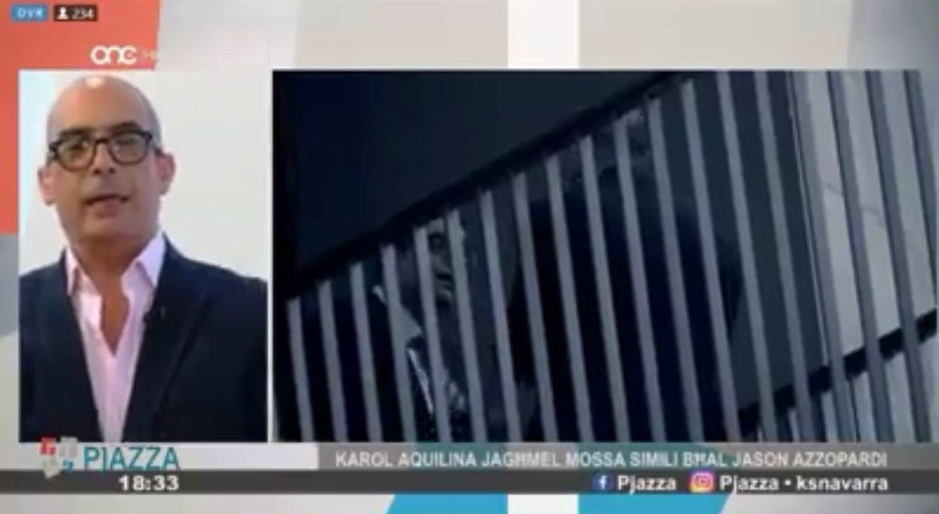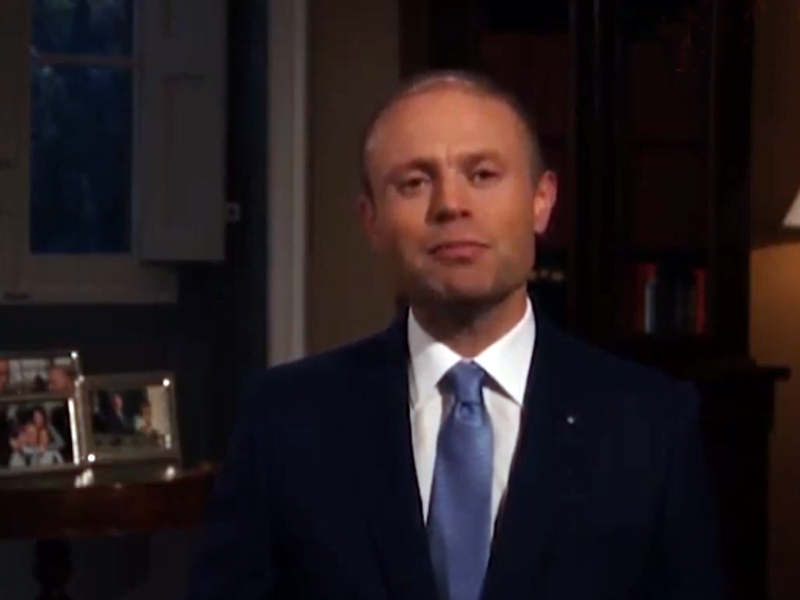What links a disgraced former Prime Minister’s resignation letter with some conveniently leaked and manipulated driving footage from summer 2019? Nothing, unless you’re looking for a diversion.
Four months after Joseph Muscat’s “farewell tour” and final resignation, Malta still does not have an unequivocal answer to the question as to why he, and Konrad Mizzi for that matter, actually resigned.
Last Thursday, The Shift revealed that President George Vella refused a Freedom of Information (FOI) request for a copy of Muscat’s resignation letter. The grounds cited by President Vella were that “[its release] would have a substantial adverse effect on the proper and efficient conduct of the operations of [the government]”.
People can speculate that having OPM staff potentially embroiled in journalist Daphne Caruana Galizia’s assassination or being nominated by OCCRP as ‘The World’s Most Corrupt Leader’ in 2019 may have had a bearing on his untimely exit; but, like most things Muscat, a cloud of doubt still lingers.
Instead, room appears to have purposely been left for speculation and, eventually, a rose-tinted counter narrative to take root.

Karl Stagno Navarra guiding the audience’s heads, but does the video really show what he says it does?
President Vella’s reply last week to the effect that the State’s interests in keeping the letter’s contents secret outweigh the public interest, does not offer much comfort.
The Opposition, through its spokesperson for Good Governance Karol Aquilina, among others, picked up on The Shift’s article and called for the immediate publication of Muscat’s resignation letter.
Unsurprisingly, we have yet to hear any form of formal reaction from the government; but the governing Labour Party was only too ready to respond.
What followed was a textbook case of the three “Ds” of propaganda and disinformation: Deny, Divert and Discredit, with lead propagandist and ‘person of trust’ extraordinaire Karl Stagno Navarra leading the charge.
The same day that the Opposition echoed the FOI request for the letter, this got a prominent mention on Stagno Navarra’s Pjazza on the Labour Party’s One TV.
It would be disingenuous to argue that his daily talking-head show Pjazza represents the views of the Maltese government.
Yet, it does offer insight into the governing Labour party’s thoughts – particularly the topics or people it wishes to target and suppress, both by virtue of being a prime time staple on the editorially controlled Labour Party’s One TV as well as the well-documented regular approbation of its content by Labour functionaries, including Ministers and Members of Parliament.
The first ‘D’ – Deny
Stagno Navarra opened the show, and it is a show that has no grounding in fact, by setting the scene.
“This [FOI request] was something that was not in the mainstream news but is being championed by The Shift News,” he said.
What followed was the typical dangling of Labour propaganda bogeymen – “these [the Shift] are practically an extension of Occupy Justice” as well as “Simon Busuttil” and “Jason Azzopardi”, all got thrown about to frame the topic and pin the argument down in established targets of hate by the Party.
The denial of the request by the President was described by Stagno Navarra as merely the President stating that “there was no public interest in the letter” and that “it is also within the Head of State’s discretion to not publish certain confidential letters”. Naturally, Stagno Navarra ignored the fact that this “discretion” is curtailed by law, notably the FOI Act.
What the President actually said is that the publication of the letter would have an adverse effect on the functioning of the government.
But what Stagno Navarra tried to portray to his audience is that there was nothing to see here.
The “Ds” of propaganda only work if a denial is swiftly followed with what can only be described as sleight of hand: a distraction and then a counter-attack typically against the messenger. And that’s what followed.
The second ‘D’ – Divert
Seamlessly, Stagno Navarra drifts from the topic of Muscat’s closely guarded resignation letter to how Aquilina must have acted alone in issuing his statement.
The intention is clear: to divert attention away from the clearly uncomfortable topic of Muscat’s resignation and onto driving wedges between Opposition members and portraying a weak, splintered opposition to the audience.
The press release issued by Aquilina got compared to the actions of another Labour bogeyman, Azzopardi, and the police report (kwerela) filed against the sailors of AFM vessel P52, the Prime Minister and the Brigadier and how this was done “without Delia’s knowledge”.
Obviously, Stagno Navarra fails to mention that Azzopardi filed this report in his capacity as lawyer for NGO Repubblika in connection with 12 refugee deaths and presumed deaths at sea, allegedly by omission.
Stagno Navarra goes on to assure his audience that he “is certain Delia did not know about Aquilina’s press release” and goes on to play an out of context black and white clip of Delia talking to Aquilina described as being an example of an “argument”.

Stagno Navarra’s Pjazza makes frequent use of another Propaganda and Disinformation tactic: “out of context”.
As if to press the point, the clip was then followed by yet another clip; this time, of a loaded question by a One TV reporter to Aquilina during a press conference following the Commissioner for Standards in Public Life’s findings that Ministers were using public funds for self-promotion on Facebook.
Stagno Navarra tells the audience to keep Aquilina’s reply in mind: “I will keep insisting that justice is done and that whatever is wrong is investigated and that action is taken”.
He did not tell his audience that the clip was not exactly the reply to the question. Then, showing another clip of Aquilina at the protests following Daphne Caruana Galizia’s assassination calling for the resignation of the Police Commissioner, who has since been removed.
Stagno Navarra moved onto the final stage, shooting the messenger.
The final ‘D’ – Discredit
He whets his audience’s appetite by claiming that what follows is footage that “has never been seen before” and is “exclusive”.
Stagno Navarra then goes on to play footage taken from what looks like a Malta Security Services’ (MSS) Mercedes’s dashcam of what he claims is an “official delegation” of three cars with two police outriders on 3 June 2019 at 8.11am, according to the timestamp.
As always, there is no explanation as to how One TV, a political party’s station, got access to confidential government vehicle footage nor why it was kept for over a year in defiance of data protection rules on data retention.
Stagno Navarra goes on to say that a black car seen in the footage (marked with a big red arrow) is Aquilina driving.
While describing footage that, without the voice over, looks like a normal morning on Malta’s haphazard roads, as “reckless” and “taunting”, Stagno Navarra goes on to claim that Aquilina:
- Was overspeeding, despite the dashcam timestamp at the bottom left showing that vehicles recording the scene were frequently running well over 70km in a 60km area,
- Cut into an “official delegation’s carcade”, which does not appear to be any form of infraction other than in the mind of self-important people in the carcade,
- Ran a red light, despite the footage itself showing that the car marked as Aquilina’s slowed and disappears from sight as the first vehicle recording shoots past the red light instead,
- Taunted the police motorcyclists and even “tried to drop one”, as footage shows one police outrider dangerously and illegally overtaking on the slow lane even when the car on the fast lane, claimed to be Aquilina, has its left indicator on signalling a move into the slow lane.
The footage, without Stagno Navarra’s misleading narration, speaks for itself.
Note that the dashcam footage even cuts to that from another vehicle (the third car in the carcade) after the “red light episode” (watch from 1:01 onwards), not only based on the identifiers in the time stamp (bottom right side) but also since Aquilina’s car would have now been well behind the original vehicle filming.
Perhaps the best moment was Stagno Navarra stressing, while showing footage portraying the diametric opposite of what he was saying, that “on Pjazza he does not lie”.
Before going on to attack Matthew Caruana Galizia in the second segment for daring to share an article by French newspaper Le Monde about alleged Chinese espionage through the Maltese embassy in Brussels (another uncomfortable topic), Stagno Navarra ended with a final claim.
“Police sources” told him, he said, that Aquilina was “subsequently chided” by the police outriders and “invoked parliamentary immunity” – despite the police being well aware that parliamentary immunity largely applies to words spoken in parliament and certainly does not apply to traffic infractions.
Spreading disinformation
Typically, Pjazza’s audience is limited to One TV viewers – around 20% of the population, according to the Broadcasting Authority – and pushed by online videos shared through social media. But, this time Stagno Navarra took matters one step further.
Not only was the footage again aired on a One News bulletin and an article carried on Labour Party newspaper Kulhadd’s front page, but Stagno Navarra also claimed that he filed a complaint with the Commissioner for Standards in Public Life.
His claim was carried by media outlets like Lovin Malta and Malta Today – while failing to report on the President rejecting the FOI request to publish Muscat’s resignation letter, they ran with headlines that Stagno Navarra filed a complaint about Aquilina’s “dangerous driving”.
Stagno Navarra’s complaint to the Commissioner does not repeat his absurd claim elsewhere that Aquilina invoked parliamentary privilege for an unspecified traffic infraction. That only served to feed another chilling line that the Labour Party has been echoing for three years – that parliamentary immunity, the democratic right to speak freely in parliament, should be abolished.
Aquilina, backed by the Party, has since denied Stagno Navarra’s claims calling them a blatant distraction. The MP said he had no problem with the Public Standards Commissioner investigating the allegations and had offered a meeting himself.
“What Stagno Navarra is doing has the blessing of Prime Minister Robert Abela and with the complicity of a top official in the police department trying to blackmail me to stop me from talking about the corruption of his friends, Muscat, Keith Schembri and Konrad Mizzi,” Aquilina said.












